Review round-up: rotary speaker pedals
Four Leslie sims from Strymon, Danelectro, Electro-Harmonix and Neo Instruments
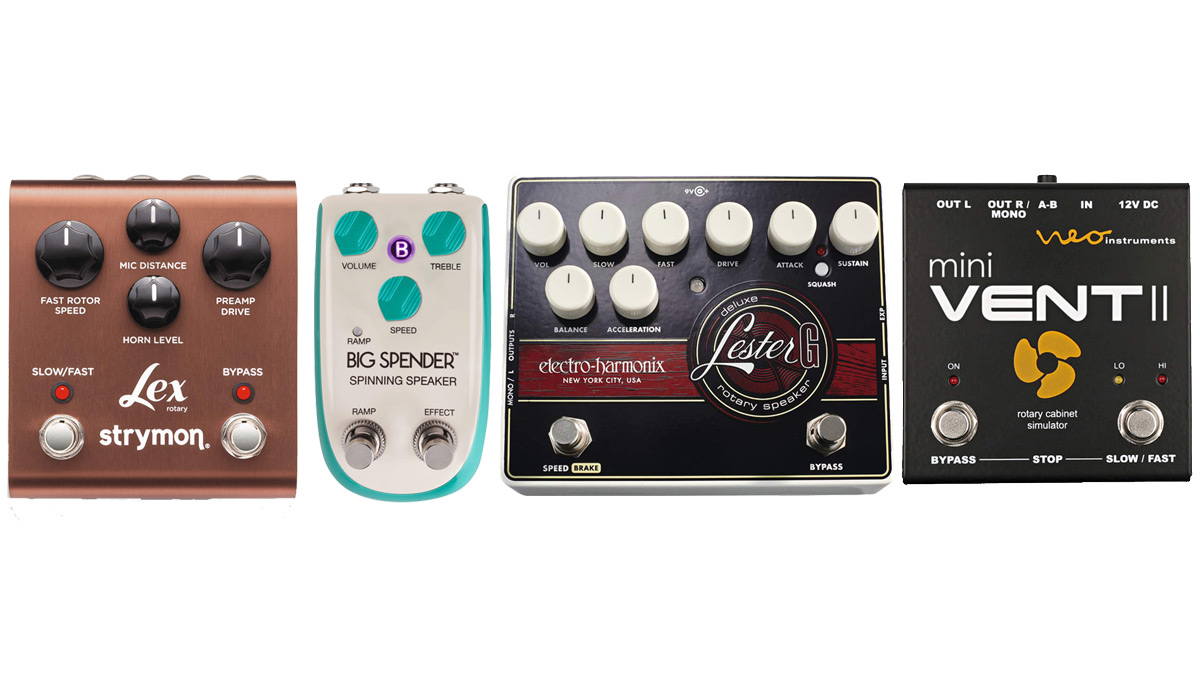
For most people, ‘rotary speaker’ probably instantly conjures up two key sounds: Hendrix’s clean tone in Little Wing, and his guitar histrionics in cuts like Machine Gun later in his career.
What’s interesting is that even in the '60s, the Uni-Vibe phase effect, which aimed to emulate the sound of a rotating speaker, was what he was using to achieve those tones live. The rotating speaker, most famously the Leslie, generates a fluctuation in volume and in pitch, which is why it bears more than a passing similarity to the sound generated by a phaser pedal.
From subtle vibrato sounds to wild tremolo, pedal-based emulations can exceed what the original physical machines could do, and take the player into wholly new sonic territory. We check out the best modern offerings...
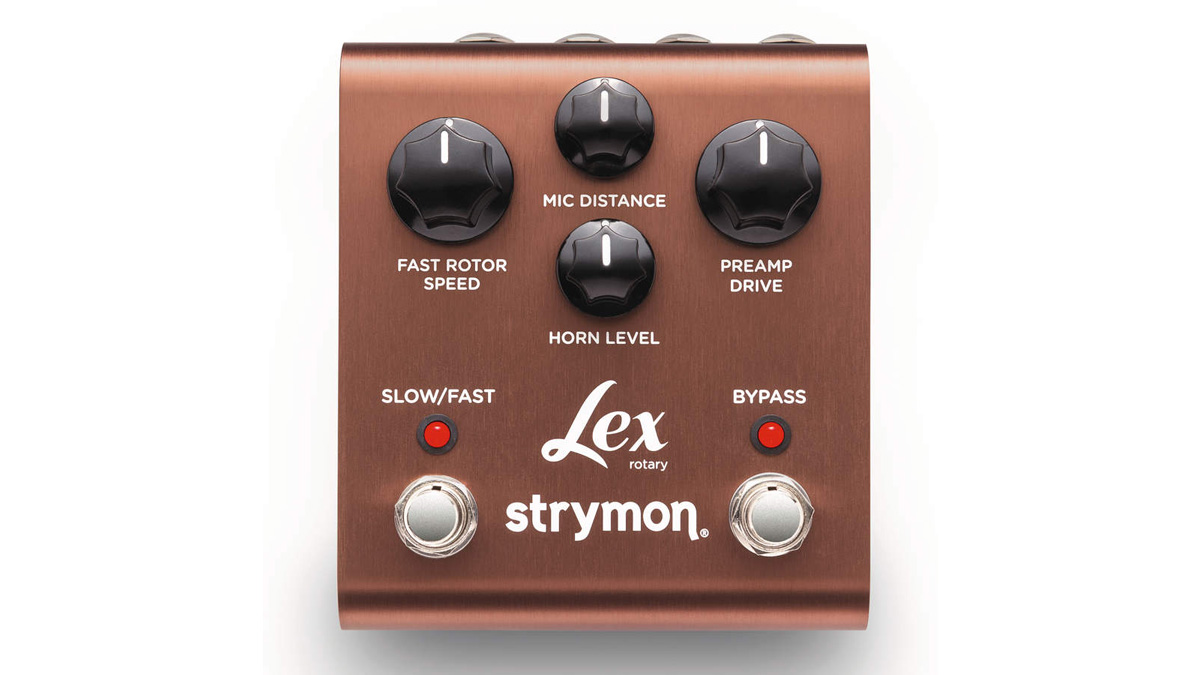
Strymon Lex
Although not as complicated as some Strymon pedals, the Lex is still feature-rich.
It’s stereo, and best experienced in that mode, as well as boasting an expression- in, should you want more fine-grained control over the vibrato speed. Without an expression pedal, you have a knob for fast rotor speed, and a footswitch to transition from slow to fast.
This footswitch also doubles as a tap, so you can modify the speed on the fly. There’s a control for mic distance, which we didn’t find useful, but the horn (treble) and preamp drive controls are excellent and facilitate a number of different timbres and tones.
4 out of 5
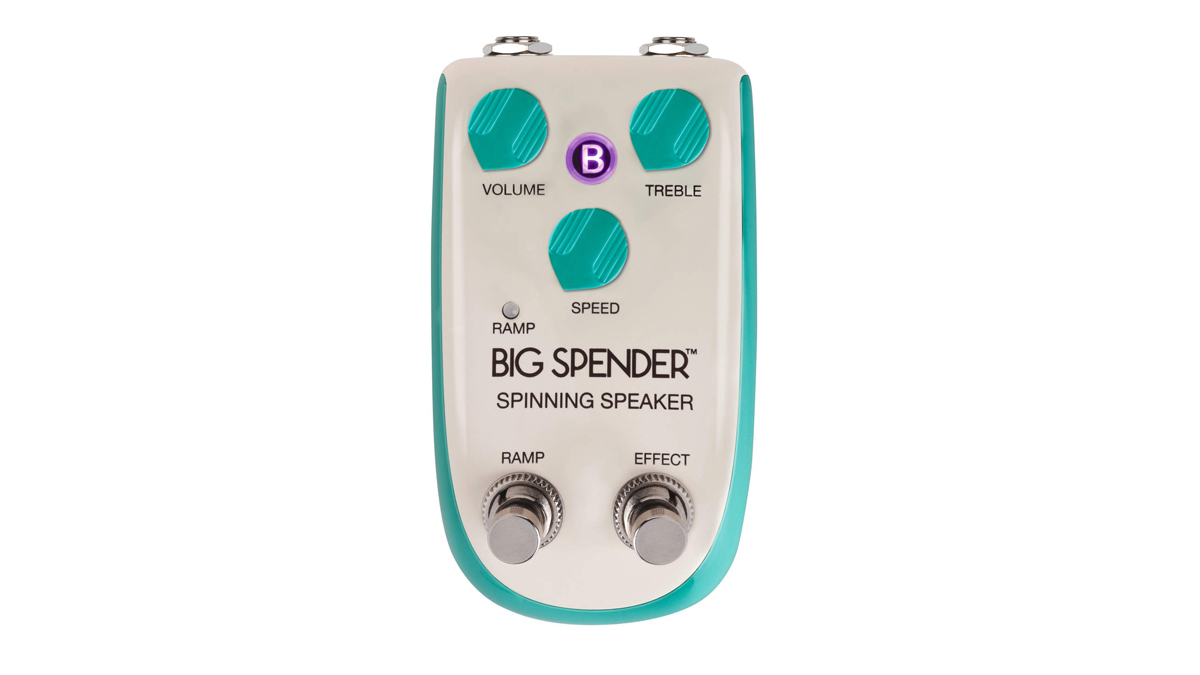
Danelectro Big Spender
Although the Danelectro is the cheapest of the options here, don’t let that fool you.
The sounds are solid, although the control panel is limited and there’s a high likelihood of hitting both footswitches at once if you have big feet. The ramp footswitch toggles between a faster and slower rotary setting, and with the treble control pulled back, we were able to find a sweet spot of great rotary sounds.
There was some unfiltered noise on the test unit, and the manual states you should expect switch pop on the first five actuations every time it’s powered on. It’s a shame, because the sounds are great.
3 out of 5
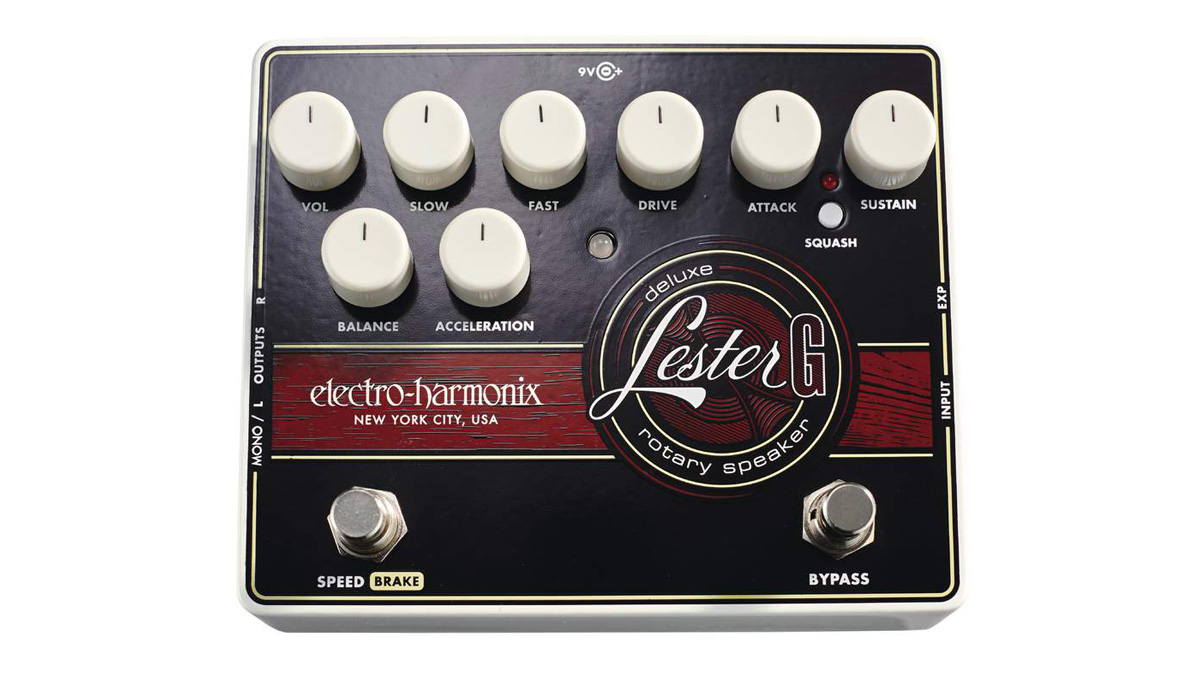
Electro-Harmonix Lester G
The most feature-rich of the pedals, Lester boasts a separate slow and fast rate control and an expression in.
As such, it pips even the Lex to the post in terms of options, and backs this up with a fantastic core sound. From Steven Wilson-esque subtle modulation to seasick, Jimi Hendrix Uni-Vibe fare, the sounds you crave are in here.
The additional drive control is pleasantly musical, and tweaking the acceleration knob opens up different timbres when you hit the ramp footswitch. There’s a built-in compressor that isn’t half-bad. Combined with the drive, it can tip an amp into musical saturation for solo work.
4 out of 5
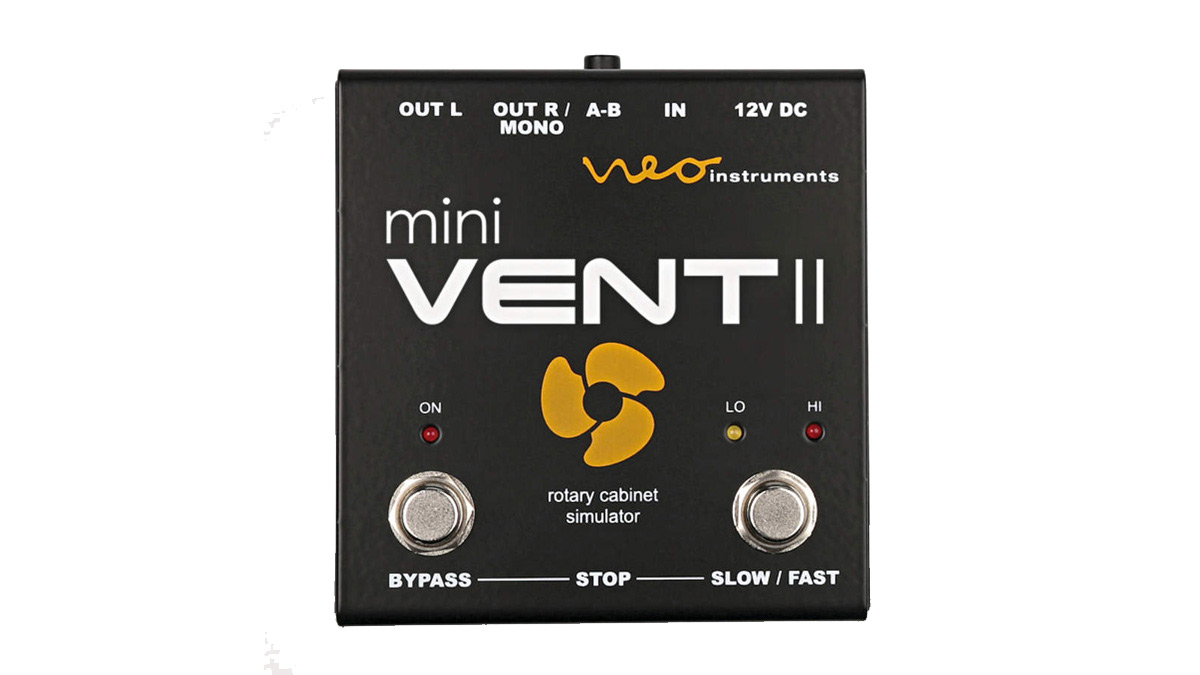
Neo Instruments Mini Vent II
The pedal is also aimed at keyboard players, which accounts for its minimalist interface.
You’re limited to two presets, accessed via a switch on the top. Otherwise, it’s mono in, stereo out, with two footswitches. The first is a bypass and the second is a familiar rate control, which toggles between slow and fast.
It shines in stereo mode, where independent LEDs show you how fast each stereo side is moving. In terms of sounds and programmability it is peerless, but the programming the unit is complicated. The built-in presets are great, but it feels like paying for unnecessary horsepower.
4 out of 5
Alex Lynham is a gear obsessive who's been collecting and building modern and vintage equipment since he got his first Saturday job. Besides reviewing countless pedals for Total Guitar, he's written guides on how to build your first pedal, how to build a tube amp from a kit, and briefly went viral when he released a glitch delay pedal, the Atom Smasher.


